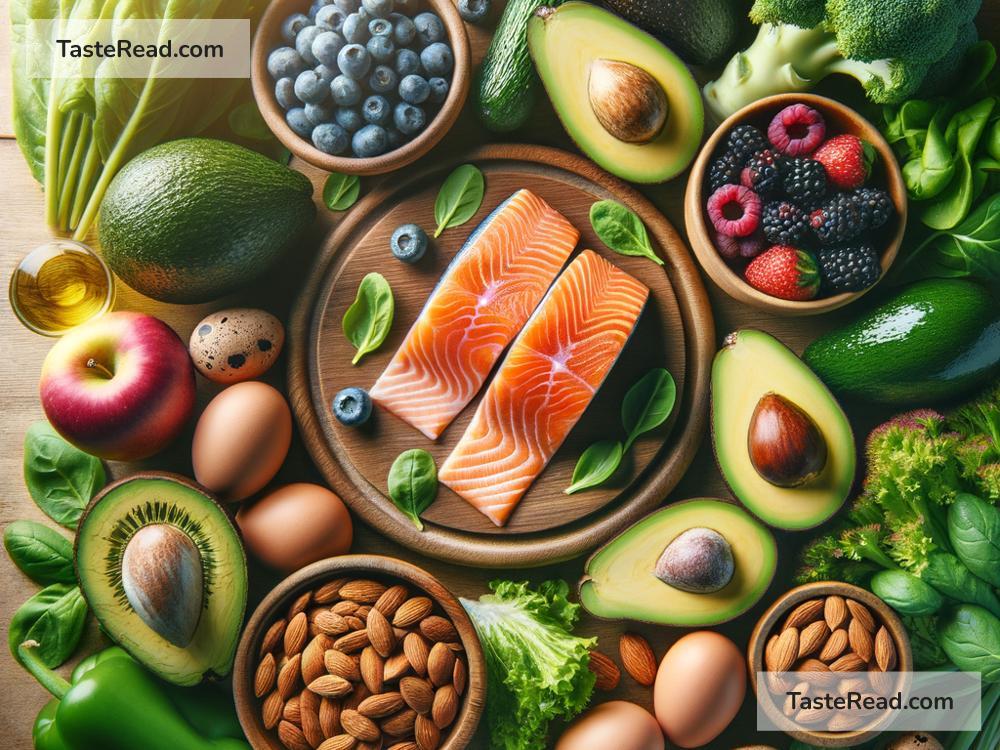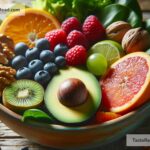Foods to Improve Egg Quality: A Simple Guide
Are you trying to conceive or planning to prioritize your reproductive health? One important factor to consider is egg quality. Healthy eggs are crucial for successful ovulation, fertilization, and overall fertility. While many factors affect egg quality, such as age, genetics, and lifestyle, your diet plays a vital role in supporting your reproductive health. Thankfully, there are specific foods that can help nourish your body and improve egg quality. Let’s explore them in simple language!
What is Egg Quality?
Egg quality refers to how healthy and viable your eggs are. High-quality eggs have the best chance of being fertilized and growing into a healthy embryo. Poor egg quality, on the other hand, can make it harder to conceive.
Egg quality naturally decreases with age, especially after 35. However, eating healthy can help give your eggs the nutrients they need to stay as strong as possible.
Foods That Help Improve Egg Quality
The foods on this list are packed with vitamins, minerals, and antioxidants that support healthy cells—including egg cells. Here are some of the best choices for fertility-friendly eating:
1. Leafy Greens
Leafy greens like spinach, kale, and Swiss chard are superfoods for egg health. These veggies are rich in folate, a B-vitamin that helps prevent chromosomal abnormalities in eggs. Folate is also vital for healthy ovulation and supports early pregnancy.
Try adding leafy greens to salads, smoothies, or soups to get your daily dose of this nutrient.
2. Avocados
Avocados are rich in healthy fats, especially monounsaturated fats, which are great for your reproductive system. Healthy fats can improve blood flow to the ovaries, helping them function better.
Avocados also contain vitamin E, an antioxidant that protects egg cells from damage. Enjoy avocados sliced on toast, blended into dips, or as part of a delicious salad.
3. Nuts and Seeds
Almonds, walnuts, sunflower seeds, and chia seeds are fertility-boosting powerhouse snacks. They are packed with omega-3 fatty acids, magnesium, and vitamin E, all of which promote better egg health.
Magnesium is especially important because it helps regulate hormones and reduces inflammation in the body. You can munch on nuts and seeds or sprinkle them over yogurt, oatmeal, or smoothies.
4. Fatty Fish
Fatty fish like salmon, sardines, and mackerel are amazing sources of omega-3 fatty acids. Omega-3s support reproductive health by improving blood flow to the ovaries and reducing inflammation. They also help regulate hormones and improve the chances of healthy ovulation.
Try eating fatty fish at least twice a week. If you don’t eat fish, consider a high-quality omega-3 supplement (but always consult your doctor first).
5. Berries
Berries like blueberries, raspberries, and strawberries are rich in antioxidants that protect your eggs from oxidative damage. Oxidative stress can harm egg cells and lower their quality, so eating antioxidant-rich foods is important for reproductive health.
Throw some berries in your morning cereal, mix them into smoothies, or enjoy them as a healthy dessert.
6. Eggs
Eggs themselves are an excellent food for improving egg quality! Eggs are high in protein, choline, and vitamin D—all essential nutrients for healthy eggs. Choline improves cell function, while vitamin D supports ovarian health.
For an extra fertility boost, consider eating pasture-raised or omega-3 enriched eggs.
7. Whole Grains
Whole grains such as quinoa, oats, brown rice, and whole wheat are great for balancing hormones. They are rich in fiber, which helps regulate blood sugar levels and provides a steady source of energy that supports ovulation.
Replace refined grains like white bread and pasta with whole grain alternatives for better egg health.
8. Bright Orange Vegetables
Carrots, sweet potatoes, and pumpkins are bright orange for a reason—they are high in beta-carotene, a nutrient that promotes overall fertility. Beta-carotene helps regulate hormones and prevent damage to eggs.
Roast these veggies for a delicious side dish or blend them into soup for a nutrient-packed meal.
9. Greek Yogurt
Greek yogurt is rich in protein, calcium, and probiotics, all of which support reproductive health. Probiotics help maintain a healthy gut and support hormone production, while calcium is key for ovarian health.
Add Greek yogurt to your breakfast or enjoy it as a creamy snack with fruit and honey.
10. Water
While water isn’t technically a “food,” staying hydrated is vital for egg quality. Drinking enough water helps your entire reproductive system function properly and supports hormone balance. Aim to drink 6-8 glasses a day.
Foods to Limit or Avoid
While eating fertility-friendly foods is essential, you should also limit certain types of foods that can hurt egg quality. These include:
- Processed Foods: Packaged snacks, fast food, and sugary treats often contain unhealthy additives and trans fats.
- Alcohol: Drinking too much alcohol can reduce fertility and harm your overall health.
- Caffeine: Too much caffeine can affect hormone balance and egg health. Stick to moderate amounts, like one cup of coffee per day.
- Artificial Sweeteners: Avoid substitutes like saccharin, which can negatively impact egg health.
Final Thoughts
Improving egg quality takes time and commitment, but adding fertility-friendly foods to your diet is a great place to start. Remember, a healthy lifestyle is more than just food—it also includes regular exercise, good sleep, and stress management.
If you’re hoping to conceive, be patient with your body and give it the nutrients it needs to thrive. Small changes in your diet can make a big difference in your reproductive health. And as always, consult with your doctor or a fertility specialist for personalized advice.
Take care of yourself, eat well, and nourish your eggs—they’re worth it!


